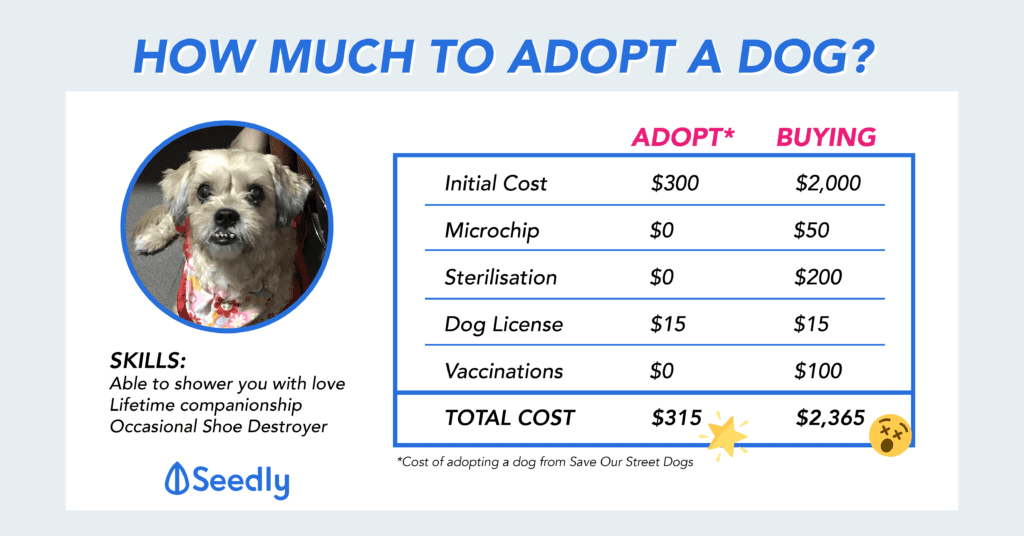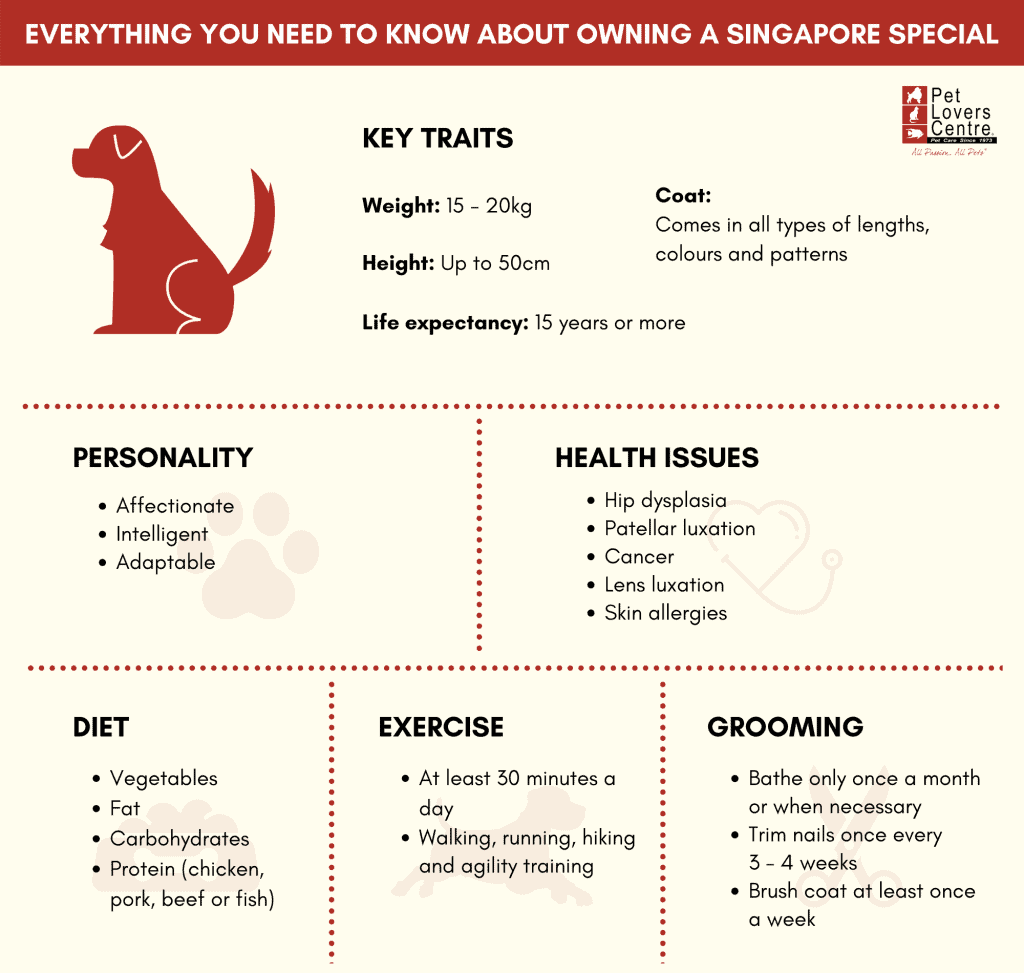Table of Contents
If you’re considering adding a four-legged friend to your family in Singapore, it’s important to be well-informed about the costs involved. From adoption fees to the expenses of maintaining a dog’s health and happiness, this guide will provide you with an overview of dog prices in Singapore. Whether you’re interested in purebred pups or rescue dogs, understanding the various factors that contribute to the cost of owning a dog will help you make an informed decision and ensure a smooth and enjoyable journey in welcoming a new furry companion into your life.

Factors that Influence Dog Prices
When considering the cost of a dog, there are several factors that influence the price. These factors include the breed, age, pedigree, size, demand, training, health, availability, source, and location. By understanding these factors, you can have a better idea of what to expect when looking for a dog to bring into your home.
Breed
One of the primary factors that affect the price of a dog is its breed. Some breeds are more popular and in-demand, which drives up their price. For example, breeds like Labrador Retrievers, Golden Retrievers, Bulldogs, and Poodles tend to be on the higher end of the price spectrum. On the other hand, breeds like Beagles and Dachshunds may be more affordable.
Age
Age also plays a role in determining the cost of a dog. Puppies generally have a higher price tag compared to adult dogs. This is because puppies require more time, effort, and resources for training, veterinary care, and socialization. Older dogs, especially those in their senior years, may have a lower price as they may require additional medical attention or have a shorter expected lifespan.
Pedigree
The pedigree of a dog refers to its ancestral lineage and the breeders involved in its breeding. Dogs with a reputable pedigree from well-known breeders often come with a higher price tag. This is because breeders with reputations for producing healthy and well-tempered dogs invest a significant amount of time and resources into breeding programs. On the other hand, mixed breed or hybrid dogs may come at a lower cost.
Size
The size of a dog also affects its price. Generally, larger breeds tend to have a higher cost compared to smaller breeds. This is partly due to the increased amount of food and space required to accommodate larger dogs. Additionally, certain large breeds, such as Mastiffs or Great Danes, may have specific health issues that contribute to their higher price.
Demand
The level of demand for a particular breed or type of dog can greatly influence its price. If a certain breed is trendy or popular at a specific time, the demand for that breed may increase. This increased demand can drive up prices as breeders and sellers take advantage of the market. Conversely, breeds with lower demand may be more affordable.
Training
The level of training a dog has received can also impact its price. Dogs that have undergone professional obedience training or specialized training for activities like agility or therapy work may be priced higher due to the investment made by the previous owner or breeder. Dogs with no training or behavioral issues may have a lower cost.
Health
The health of a dog is a crucial factor in determining its price. Dogs with documented health certifications, vaccinations, and regular check-ups from reputable veterinarians may have a higher price. This is because potential owners are willing to pay more for dogs with a lower risk of genetic or health-related issues. On the other hand, dogs with underlying health conditions may have a lower cost due to the potential expenses that come with their care.
Availability
The availability of a certain breed or type of dog can also affect its price. If a particular breed is rare or has limited availability in a certain location, the demand for that breed may increase. This scarcity can drive up the price as potential owners are willing to pay a premium to have a unique or hard-to-find dog. Conversely, breeds or types of dogs that are more prevalent or common may be more affordable.
Source
Where you choose to acquire a dog can also impact its price. There are various sources for obtaining a dog, including pet shops, breeders, and adoption centers. Each source has its own pricing structure. Pet shops often have higher prices due to the overhead costs associated with running a business. Breeders may have a wider range of prices depending on factors such as pedigree, health certifications, and reputation. Adoption centers, on the other hand, may offer dogs at a lower cost as they focus on finding homes for rescued or abandoned animals.
Location
The location where you are looking to purchase or adopt a dog can also influence its price. Different regions or countries may have varying costs of living, economic conditions, and regulations that impact the price of dogs. For example, certain cities or countries may have higher average dog prices due to increased demand, limited availability, or stricter regulations on pet ownership. Conversely, areas with a lower cost of living may have more affordable dogs.
By considering these factors, you can gain a comprehensive understanding of what influences dog prices and make an informed decision when searching for a new furry companion.
Popular Dog Breeds and Their Prices
When looking at dog prices, it is essential to familiarize yourself with popular dog breeds and their average prices. While prices can vary depending on factors such as age, pedigree, and availability, knowing the general price range for popular breeds can give you an idea of what to expect when considering a specific breed.
Labrador Retriever
Labrador Retrievers are one of the most popular dog breeds and are known for their friendly nature and intelligence. Labrador Retrievers typically range in price from $800 to $1,500, depending on factors such as pedigree and breeder reputation.
Golden Retriever
Golden Retrievers are another beloved breed known for their loyalty and gentle temperament. Prices for Golden Retrievers generally range from $1,000 to $2,000, with breeder reputation and lineage influencing the price.
Bulldog
Bulldogs are a unique and recognizable breed known for their distinctive appearance. Due to their popularity and specific health considerations, Bulldogs can range in price from $1,500 to $4,000 or more.
Poodle
Poodles are elegant and intelligent dogs that come in different sizes, including toy, miniature, and standard. Prices for Poodles can vary widely depending on size, pedigree, and breeder reputation. Toy Poodles may range from $1,000 to $2,000, while Standard Poodles can be priced between $1,500 and $3,000.
French Bulldog
French Bulldogs have gained significant popularity in recent years due to their compact size and playful personality. Prices for French Bulldogs can be on the higher side, ranging from $2,000 to $4,000 or more, depending on factors like pedigree and breeder reputation.
German Shepherd
German Shepherds are known for their loyalty, intelligence, and versatility. Prices for German Shepherds typically range from $1,000 to $2,500, depending on factors such as pedigree and the dog’s specific purpose (e.g., working line or show line).
Corgi
Corgis, with their adorable appearance and lively personality, have captured the hearts of many dog lovers. Prices for Corgis can range from $1,000 to $2,500, depending on factors such as pedigree, coat color, and breeder reputation.
Shiba Inu
Shiba Inus are a Japanese breed known for their spirited and independent nature. Prices for Shiba Inus typically range from $1,500 to $3,000 or more, depending on factors such as pedigree and availability in your region.
Beagle
Beagles are friendly and energetic dogs known for their excellent scent tracking abilities. Prices for Beagles generally range from $800 to $1,500, although factors such as pedigree and breeder reputation can influence the price.
Dachshund
Dachshunds, also known as Wiener dogs, are characterized by their long bodies and short legs. Prices for Dachshunds can vary depending on factors such as coat type (smooth, wirehaired, or longhaired), size, and breeder reputation. Generally, Dachshunds can range in price from $800 to $1,500.
It’s important to note that these are average price ranges and can vary based on factors specific to each breeder or seller. By understanding the price range for popular dog breeds, you can better plan and budget for your new furry friend.

Average Costs of Different Dog Breeds
Understanding the average costs of different dog breeds can help you plan and budget accordingly. Costs can vary depending on several factors, including breed size, specific breed considerations, and availability. Here is a breakdown of the average costs for small, medium, large, and rare dog breeds.
Small Breeds
Small dog breeds, such as Chihuahuas, Maltese, or Shih Tzus, often have lower average costs compared to larger breeds. On average, you can expect to spend between $500 and $1,500 for a small breed dog. However, certain small breeds with specific characteristics or rare coat colors may have higher price tags.
Medium Breeds
Medium dog breeds, including Australian Shepherds, Spaniels, or Border Collies, usually fall within a slightly higher price range. On average, you can expect to spend between $800 and $1,800 for a medium breed dog. Factors such as pedigree, training, and availability can influence the final price.
Large Breeds
Large dog breeds, such as Great Danes, Rottweilers, or Bernese Mountain Dogs, typically have higher average costs due to factors such as size, specific health considerations, and demand. On average, you can expect to spend between $1,000 and $2,500 for a large breed dog. However, certain large breeds with rare coat colors or exceptional pedigrees may have significantly higher price tags.
Rare Breeds
Rare dog breeds, such as the Tibetan Mastiff or the Azawakh, are often associated with higher costs due to their limited availability and unique characteristics. The average cost for rare breeds can vary widely, ranging from $3,000 to $10,000 or more, depending on factors such as breed popularity, demand, and breeder reputation.
It’s important to note that these are average cost ranges, and individual prices can vary depending on the dog’s specific characteristics, breeder reputation, and location. Additionally, it’s crucial to consider ongoing costs, such as food, grooming, medical expenses, and training, when budgeting for a new dog.
Cost Breakdown
Owning a dog entails various costs beyond the initial purchase price. It’s essential to consider these costs when planning to bring a dog into your home. Here is a breakdown of the different expenses you can expect as a dog owner:
Cost of Purchase
The cost of purchasing a dog varies depending on factors such as the breed, age, pedigree, and availability. You can expect to pay anywhere from a few hundred dollars to several thousand dollars for the initial purchase of a dog.
Vaccinations and Medical Expenses
Vaccinations are crucial for maintaining your dog’s health and preventing common diseases. The cost of vaccinations can range from $50 to $200 or more per year, depending on the number of vaccines required and the overall health needs of your dog. Additionally, you should budget for routine preventive care, such as flea and tick medications, heartworm prevention, and regular check-ups, which can cost between $100 and $500 annually.
Food and Treats
Proper nutrition is vital for your dog’s overall health and well-being. The cost of dog food can vary based on the brand, quality, and size of your dog. On average, you can expect to spend between $500 and $1,000 annually on dog food. Treats and supplements are additional expenses to consider and can cost around $100 to $300 per year.
Grooming
Grooming needs can vary depending on the breed and coat type of your dog. Regular grooming appointments, including bathing, nail trims, and haircuts, can range from $30 to $100 or more per session. If you prefer to groom your dog at home, you’ll need to budget for grooming supplies such as brushes, shampoos, and grooming tools, which can cost between $50 and $200 initially, plus ongoing costs for replacements.
Training and Classes
Training and socialization are vital for a well-behaved and happy dog. The cost of training can vary depending on the type of training, location, and the specific needs of your dog. Puppy training classes typically range from $100 to $300 for a series of classes, while individual training sessions or specialized training can cost $50 to $150 per hour.
Toys and Accessories
Providing your dog with toys and accessories is important for mental stimulation and playtime. The cost of toys can vary depending on the type, durability, and preferences of your dog. On average, you can expect to spend around $100 to $300 per year on toys, beds, collars, leashes, bowls, and other essential accessories.
Pet Insurance
Pet insurance can help you manage unexpected veterinary costs and provide peace of mind. The cost of pet insurance varies depending on factors such as the dog’s age, breed, and the coverage plan you choose. On average, you can expect to pay between $30 and $60 per month for pet insurance, although prices may be higher for certain breeds or older dogs.
Regular Check-ups and Preventive Care
Routine veterinary check-ups are essential to monitor your dog’s health and catch any potential issues early on. The cost of regular check-ups, including vaccinations, annual exams, and preventive care, can range from $200 to $500 per year, depending on your location and the specific needs of your dog.
Boarding and Kennel Fees
If you require boarding or kennel services for your dog while you are away, you should budget for these expenses. The cost of boarding or kenneling can vary depending on the location, facilities, and additional services offered. On average, you can expect to pay between $30 and $60 per day.
Miscellaneous Expenses
There are various miscellaneous expenses associated with dog ownership that you should consider. These may include dog walking or pet-sitting services, which can cost $15 to $30 per visit or walk. Additionally, you should budget for miscellaneous items such as waste bags, cleaning supplies, and potential damages to your home or belongings.
It’s important to keep in mind that these are rough estimates, and the actual costs can vary depending on your specific circumstances and the needs of your dog. By planning and budgeting for these expenses, you can ensure that you are prepared for the financial responsibilities of dog ownership.

Purchase Options
When considering adding a dog to your family, it’s important to explore different purchase options. Each option has its own advantages and considerations. Here are three common purchase options for acquiring a dog:
Pet Shops
Pet shops are retail establishments that sell a variety of pets, including dogs. While pet shops can provide convenient access to a wide range of breeds, it’s important to do your research and choose a reputable pet shop. Prices at pet shops may be higher than other sources due to the overhead costs associated with running a business.
Breeders
Breeders are individuals or organizations dedicated to raising and breeding specific dog breeds. Working with a reputable breeder can provide you with valuable information about the breed and ensure that you are getting a healthy and well-cared-for dog. Prices from breeders may vary depending on factors such as the breed, pedigree, training, and health certifications.
Adoption Centers
Adoption centers, also known as animal shelters or rescue organizations, offer the opportunity to provide a loving home to dogs in need. The cost of adopting a dog from an adoption center is usually significantly lower than purchasing from a breeder or pet shop. Adoption fees typically cover basic veterinary care and ensure that the dog has been spayed or neutered.
It’s important to consider your personal preferences, lifestyle, and the specific needs of the dog when choosing a purchase option. Regardless of which option you choose, it’s crucial to research and ensure that the seller or organization has a good reputation and prioritizes the welfare of the dogs.
Considerations for Responsible Dog Ownership
Before bringing a dog into your home, it’s crucial to consider several factors to ensure that you are ready for the responsibilities of dog ownership. Here are some important considerations:
Financial Capability
Owning a dog comes with financial responsibilities, including initial purchase costs, ongoing expenses for food, grooming, training, veterinary care, and unexpected medical expenses. It’s essential to assess your financial capability and ensure that you can provide for the dog’s needs throughout its lifetime.
Time and Commitment
Dogs require daily care, attention, and exercise. Consider your schedule and lifestyle to ensure that you have sufficient time and commitment to devote to a dog. Dogs thrive on routine and consistent care, so make sure you can allocate time for feeding, grooming, exercise, training, and socialization.
Living Arrangements and Space
Consider your living arrangements and the space available for a dog. Some breeds may require a large yard to run and play, while others may be more suited to apartment living. Be mindful of any restrictions or regulations imposed by landlords or homeowners’ associations regarding pet ownership.
Allergies and Health Conditions
If you or someone in your household has allergies or specific health conditions, it’s essential to consider hypoallergenic breeds or consult with a medical professional before bringing a dog into your home. Some breeds produce less dander, making them more compatible with individuals prone to allergies.
Lifestyle and Activity Level
Different breeds have varying energy levels and exercise needs. Consider your lifestyle and activity level when choosing a breed. Active individuals or families who enjoy outdoor activities may be better suited to breeds that require regular exercise, while more laid-back individuals may prefer breeds with lower activity levels.
By considering these factors, you can ensure that you are prepared for the responsibilities and commitments that come with dog ownership. Taking the time to evaluate your situation will help you make an informed decision and provide a loving and suitable home for a dog.

Tips for Finding a Reputable Breeder or Seller
When purchasing a dog, whether from a breeder or another source, it’s essential to find a reputable and responsible seller who prioritizes the well-being of the dogs. Here are some tips to help you find a reputable breeder or seller:
Research and Background Check
Before committing to a particular breeder or seller, conduct thorough research. Look for reviews and testimonials from previous customers, and check for any negative feedback or complaints. Researching online forums and community groups related to the breed or dog ownership can provide valuable insights and recommendations.
Visit the Breeder
If possible, visit the breeder in person to see the conditions in which the dogs are kept. A responsible breeder will have clean and sanitary facilities, provide proper socialization for the puppies, and allow you to interact with the parent dogs. Ensure that the breeder is knowledgeable about the breed, its specific needs, and any potential health concerns.
Health Screening and Certifications
Responsible breeders prioritize the health and well-being of their dogs. They perform health screenings on breeding dogs to minimize the risk of passing on genetic diseases. Ask the breeder for documentation of health certifications or clearances for common breed-specific health issues. These certifications may include hip or elbow dysplasia evaluations, eye examinations, or DNA tests.
Ask for References
Request references from previous buyers who have acquired dogs from the breeder or seller. Reach out to these references to inquire about their experience with the breeder, the health and temperament of the dog they purchased, and any ongoing support received.
Contracts and Guarantees
Reputable breeders or sellers often provide written contracts that clearly outline the terms and conditions of the sale. These contracts may include health guarantees, return policies, and spay/neuter agreements. Make sure you understand and agree to the terms outlined in the contract before committing to the purchase.
Avoid Puppy Mills
Puppy mills are large-scale commercial breeding operations that prioritize profit over the welfare of the dogs. Dogs in puppy mills are often kept in overcrowded and unsanitary conditions, with little regard for their health or genetic well-being. Avoid purchasing dogs from puppy mills, as supporting these operations perpetuates the cycle of unethical breeding practices.
By following these tips and conducting thorough research, you can increase your chances of finding a reputable breeder or seller who prioritizes the health and well-being of their dogs.
Additional Costs of Dog Ownership
In addition to the initial purchase price and ongoing expenses, there are other costs associated with dog ownership that you should consider. These additional costs can vary depending on your specific circumstances and the needs of your dog. Here are some common additional costs:
License and Registration
Many regions require dogs to be licensed and registered. The cost of licensing and registration can vary depending on your location and the specific requirements set by local authorities. Be sure to budget for these costs, which can range from a few dollars to over $50 per year.
Microchipping
Microchipping is a safe and permanent method of identification for your dog. The cost of microchipping can range from $50 to $100, depending on your location and whether the procedure is performed at a veterinary clinic or by a trained professional.
Spaying or Neutering
Spaying or neutering your dog is an important step in preventing unwanted litters and potential health issues. The cost of spaying or neutering can vary depending on factors such as the gender and size of your dog and your location. On average, you can expect to pay between $200 and $500.
Training Classes
Training classes can help build a strong bond with your dog and ensure they become well-behaved members of your household. The cost of training classes will depend on factors such as the type of training, the location, and the specific needs of your dog. Expect to spend between $100 and $500 for a series of classes.
Dog Walker or Sitter
If you work long hours or have other commitments that prevent you from being home with your dog, you may need to budget for a dog walker or sitter. The cost of dog walking or sitting services can range from $15 to $30 per visit or walk, depending on your location and the length of the visit.
Emergency Vet Care
In case of accidents or sudden illnesses, emergency veterinary care may be required. Emergency vet care can be costly, and the expenses can vary greatly depending on the severity of the situation and the treatments required. It’s essential to have a financial plan in place to cover unexpected veterinary costs.
Home Modifications
Depending on the size and needs of your dog, you may need to make modifications to your home to ensure their safety and comfort. This can include installing fences, pet gates, or doggy doors. The cost of home modifications will depend on the scope of the project and any professional assistance required.
Dog-Friendly Essentials
In addition to the essential items like food bowls and a bed, you may need to invest in dog-friendly essentials such as a crate, doggy seatbelt, or travel carrier. The cost of these essentials can vary depending on the specific items and your preferences as a pet owner.
By considering these additional costs and budgeting accordingly, you can ensure that you are fully prepared for the financial responsibilities of dog ownership.

Comparison of Dog Prices to Other Countries
Dog prices can vary greatly between countries and regions due to factors such as the cost of living, demand, availability, and economic conditions. Here is a brief comparison of dog prices in several countries:
United States
In the United States, dog prices can range from a few hundred dollars for mixed breed or rescue dogs to several thousand dollars for purebred or rare breeds. The average cost for popular breeds typically falls between $800 and $2,000, although individual prices may vary.
United Kingdom
Dog prices in the United Kingdom are generally higher compared to some other countries. The average cost for popular breeds ranges from £800 to £3,000 or more, depending on factors such as breed, pedigree, and availability.
Australia
In Australia, dog prices can vary depending on factors such as breed popularity, availability, and location. The average cost for popular breeds typically falls between AUD 1,000 and AUD 3,000, although prices can go higher for certain breeds or specific pedigrees.
Asia-Pacific Region
In the Asia-Pacific region, dog prices can vary significantly between countries. Factors such as breed availability, demand, and economic conditions influence the price range. Some countries may have lower average dog prices, while others may have higher prices due to limited availability or specific breed preferences.
Neighboring Countries
Dog prices can vary between neighboring countries due to factors such as breed popularity, availability, and economic conditions. It’s important to research and understand the local market before considering purchasing a dog from a neighboring country to ensure compliance with import regulations and any potential additional costs involved.
When comparing dog prices between different countries, it’s important to consider the purchasing power and economic conditions of each region. Additionally, in some countries, rescue or adoption may be a more common and affordable option, which can provide a loving home to dogs in need.
Conclusion
Determining the cost of a dog involves considering various factors, including breed, age, pedigree, size, demand, training, health, availability, source, and location. By understanding these factors, you can have a clearer picture of what to expect when looking for a new furry companion.
Popular dog breeds such as Labrador Retrievers, Golden Retrievers, Bulldogs, and Poodles generally come with higher price tags due to their popularity and demand. However, prices can vary depending on factors specific to each breeder or seller.
It’s important to budget not only for the initial purchase cost but also for ongoing expenses such as vaccinations, food, grooming, training, and veterinary care. Additionally, considerations such as licensing, microchipping, and spaying or neutering should be taken into account.
When searching for a reputable breeder or seller, research, visit in person, ask for references, and ensure proper health certifications and contracts. Avoid supporting puppy mills and prioritize the welfare of the dogs.
Lastly, dog prices can vary between countries and regions. Factors such as cost of living, demand, and availability influence the price range in each country. By considering all these factors, you can make an informed decision and provide a loving and suitable home for a new four-legged family member.



